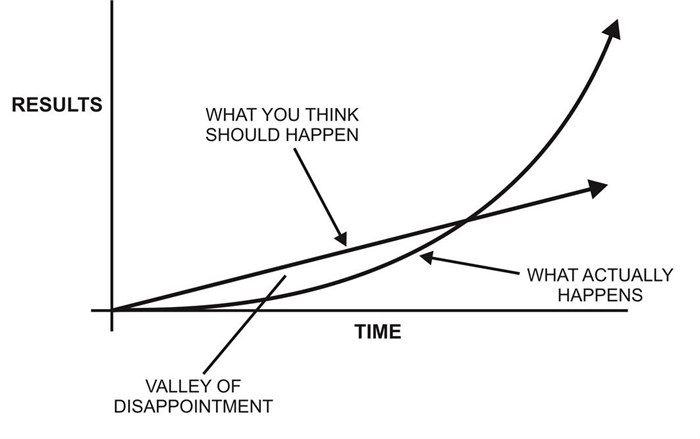Marketing & Media trends
Industry trends
BizTrends Sponsors
Trending



 Clothing brand Curve Gear opens new store in Tygervalley CentreLindsey Schutters
Clothing brand Curve Gear opens new store in Tygervalley CentreLindsey Schutters Sabre EMEA 2024 Awards: Razor PR, Retroviral top SA agenciesDanette Breitenbach
Sabre EMEA 2024 Awards: Razor PR, Retroviral top SA agenciesDanette Breitenbach
#BizTrends2021: Digital solutions need small steps to succeed

Sensor technology and big data infrastructure, for instance, has been opening doors to efficiency and productivity gains in many sectors including mining. Real-time monitoring of equipment and processes can now generate huge volumes of valuable data, which can be transferred almost instantly to a storage platform on the web. Ongoing developments in analytical capability make it possible to analyse this data in ways that quickly render it useful to an end-user, so that strategic value can be added.
Among the fields in which these trends have seen valuable take-up is in remote water level monitoring on mines’ tailing dams. Using automated vibrating wire piezometers to measure water pressure on tailings facilities, for instance, large amounts of data can be generated and transmitted in real time. The prompt analysis and interpretation of such data allows quicker and better decisions that enhance safety.
However, the fast pace of technological innovation is becoming a challenge in itself. Industry’s tools, apps and solutions are being developed at such a rate that it is difficult for many users – current or potential – to keep up. This invariably means that opportunities are being missed. Technology is frequently available, but people may not be aware that it could make a contribution in their workplaces.
Covid-19
Interestingly, too, it appears that the Covid-19 pandemic has accelerated the trend for people to ask themselves: “I can accomplish task ‘x’ in my private life with a digital app; why can’t I achieve ‘y’ at work with a similar type of solution?” The demands of Covid-19 lockdowns have certainly affected the landscape of expectations and possibilities. Many industries have been required to work remotely where possible, and companies have seen how readily applicable the available technologies are – and how they can enhance efficiencies.
At the same time, many other opportunities to streamline our work have come to light. These may not have been previously considered, or may have been tentatively explored but not pursued. Either way, a window has been opened – not just on a specific innovation that could deliver value, but on the importance of actively looking for innovations that might prove useful in our daily work.
What, then, is required for companies be more effective in identifying and harnessing the latest innovations? It really comes down to smart individuals being empowered in teams with a conducive culture.
The right culture
In his book, The Culture Code, Daniel Coyle reminds us that one trait of successful teams is that they are made up of members who are empowered to solve the problems they face as they arise. This is also more efficient when it comes to dealing with small problems, as the solutions are not delayed by awaiting input or direction from superiors who may be far removed.
Along with that empowerment, the right culture fosters curiosity and passion for improvement. It also accommodates risk and set-backs – which are inevitable in an innovative environment. It encourages team members to apply digital tools in small ways on a daily basis, empowering staff to identify what new technology exists and to try out its usefulness in novel applications. The culture allows people to experiment with how a new innovation, app or tool can be applied to a specific aspect of their job – making themselves more productive and efficient, and adding more value to the outcome.
This is especially important in recent times, given the ability of digital and data solutions to be customised – as well as the proliferation of small, no-code apps that can be learnt and run easily and cheaply.
Small steps can also assist companies with larger strategic investments. Companies will still need to retain their commitment to big databases and the associated infrastructure, of course, as this must be driven by long-term strategic decisions. Such facilities demand considerable investment over time, to expand monitoring, storage and analytical capabilities. If staff have been taking small steps of their own, they will have been slowly educating themselves on digital solutions and will be better equipped to explain their digital solution needs to the specialists who design large systems.
Small steps
Each large application, database or other digital solution is usually so specific that it needs two specialists to understand how the tool can best be leveraged: a subject matter expert who is often a consulting scientist or engineer, and a software architect who might specialise in data science or databases depending on the application. In the growing field of digital solutions, it is these specialists who will know which data they need and how it must be analysed; however, it is the staff who will know how the data will be used and practically implemented – and this staff will be much better equipped if they’ve been empowered to take small digital steps.
That is just one of the ways in which small steps lead to giant leaps. It is part of why the habit of taking small steps towards digital solutions helps create a system with a compounding effect; and, like any compounding effect, the curve – seemingly small at first – soon becomes exponential. It is also the reason that many organisations dismiss small steps. They succumb to the ‘Valley of Disappointment’ as James Clear calls it in his book Atomic Habits, rather than noting the miraculous effect of a compounding system.

An important trend that will practically push boundaries in the workplace is therefore the adoption of a culture of innovation within organisations and teams – particularly the habit of taking small digital steps. Slowly, these will lead to giant leaps in everything from efficiency and quality to improved control and even new lines of business.



